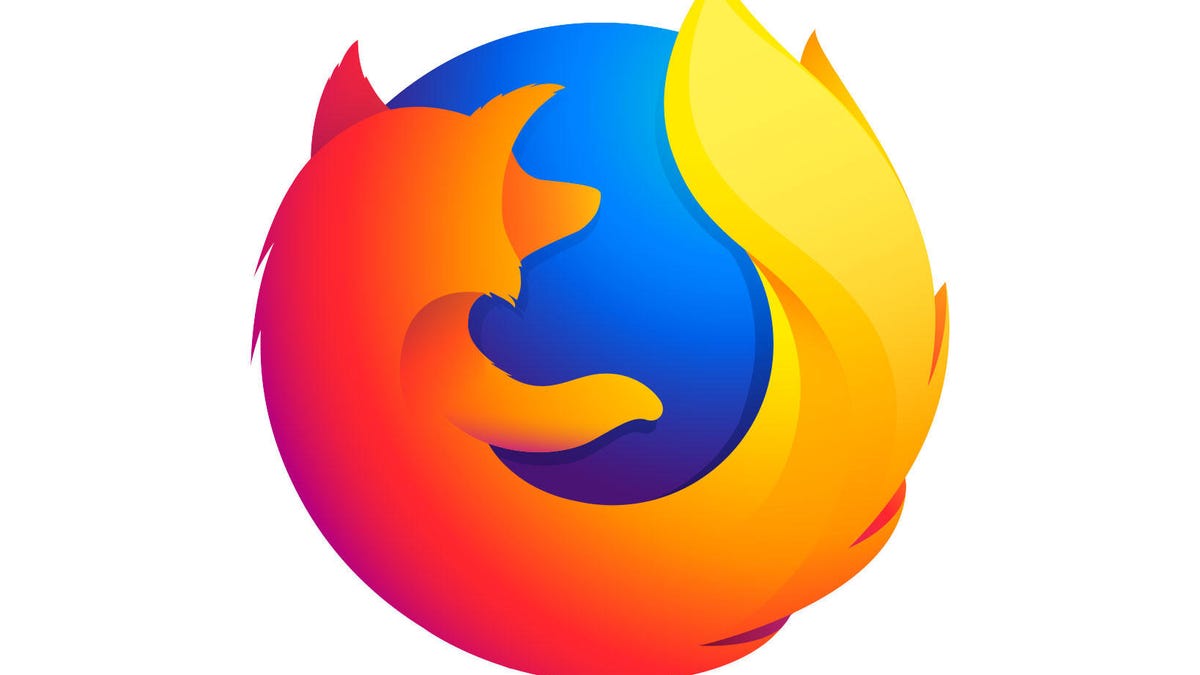Firefox challenges Apple with 4K-friendly video tech
You can now try AV1 video compression in a browser. Video files are at least 25 percent smaller than Apple's preferred format, Mozilla says.

Firefox Quantum logo
When Apple introduced iOS 11 in September, it boasted how new compression technology called HEVC shrinks your video files about 40 percent. On Tuesday, Firefox took a step to do even better.
The latest Firefox test version, called Nightly, debuts compression technology called AV1 that Mozilla said makes video files 25 percent to 35 percent smaller than those compressed with HEVC and another alternative, Google's VP9.
These improvements to video compression are key to our lives online. We're streaming more and more video to our phones , and better compression means video looks better on congested networks. Smaller file sizes mean we can store more on our devices, too. And better compression makes 4K video, with four times the pixels as traditional 1080p video, more practical.
Mozilla and Bitmovin let you test AV1 video compression in Firefox.
HEVC, also called H.265, is the successor to the wildly successful H.264 that dominates video compression today. Both were developed by a consortium of heavy hitters like the Sony, Samsung, Qualcomm, Philips, Panasonic and the Fraunhofer Institute. HEVC has been ready for years, but Apple's embrace brings it to the millions of us who use iPhones .
The AV1 faction, a consortium called the Alliance for Open Media that formed in 2015, has a big ally of its own, though: the internet. AOM founders include Google, Cisco and Mozilla, which pooled formerly separate efforts to improve video compression, and video streaming giants Amazon and Netflix. Microsoft is also a member, meaning that three of the four most powerful browser makers are on board, and Facebook just joined the effort, too.
Two of the key AOM selling points are that it's based on open-source software and it's free to use. That can be a big deal for companies that otherwise would have to pay a lot of money -- millions of dollars in many cases -- to license the patents behind HEVC.
Indeed, the AOM companies banded together after HEVC patent holders started adding new royalty payment demands. Since then HEVC licensing demands have gotten even more complex. The desire for patent royalties is undermining the likelihood that HEVC will prove as successful as H.264.
Mozilla is trying to restore its reputation with the new Firefox Quantum, a faster version of its browser with a new look. The nonprofit organization tries to use its browser clout to promote technologies that aren't controlled by a single company or burdened with patent obstacles.
Mozilla is trying to rebuild its browser reputation with Firefox Quantum.
Apple didn't respond to a request for comment.
AV1 isn't expected to be finalized until later this year. But through a partnership with another AOM member, Bitmovin, you can try AV1 video today with Firefox Nightly.
But this first move is far from making AV1 ready for prime time -- even Mozilla's blog post is tagged "bleeding edge." For one thing, encoding AV1 video is still extremely slow: it takes 150 seconds to encode 1 second of AV1 video. For another, there's no support in computer chips, something that speeds encoding and decoding and crucially means using AV1 video won't drain your phone battery .
Mozilla expects progress on performance, compression efficiency and hardware support.
"Major hardware vendors have been involved with AV1 from the start, which we expect will result in accelerated support being available much sooner," Mozilla's Ralph Giles and Bitmovin's Martin Smole said in the blog post. "We hope to stabilize the new format next year and begin deployment across the internet."
Rebooting the Reef: CNET dives deep into how tech can help save Australia's Great Barrier Reef.
The Smartest Stuff: Innovators are thinking up new ways to make you, and the things around you, smarter.

